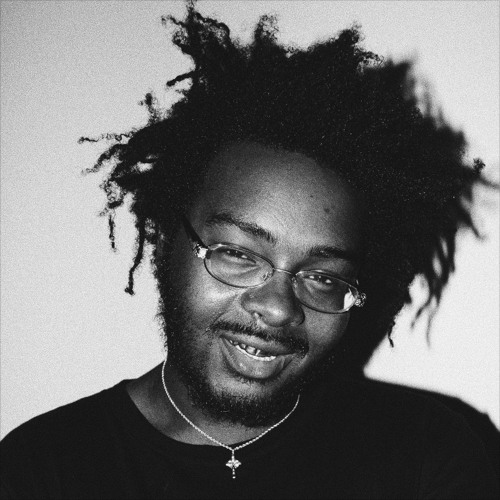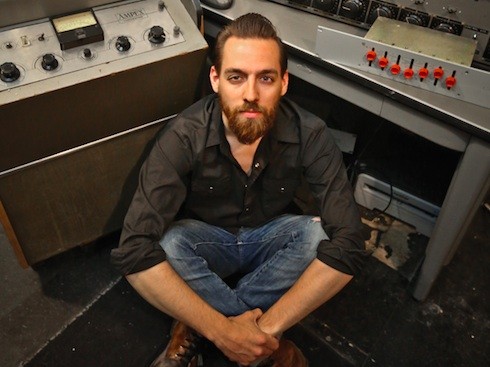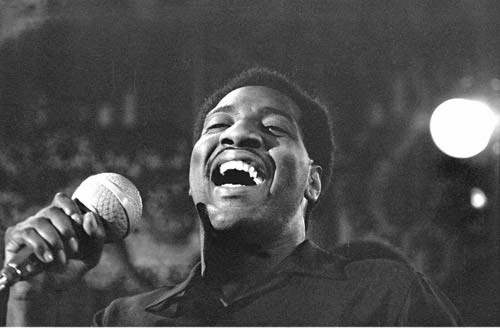Several local artists are in the running to snag Grammy Awards this coming Sunday, March 14th, including many familiar local names, such as the North Mississippi Allstars, Don Bryant, Bobby Rush, and West Memphis’ Yebba. But there’s another Memphis native in the running whose name is not as widely known: Rykeyz, aka Ryan Williamson. Such is often the fate of producers.
And yet it’s no small feat to capture the brass ring of the No. 1 R&B track in the country, as Rykeyz did with “Slow Down” by Skip Marley featuring H.E.R., nominated for Best R&B Song and featured on Marley’s Higher Place, which is also nominated for Best Reggae Album. I reached out to Rykeyz in L.A., where he now lives, to get the scoop on his Memphis roots and how he came to be one of the most sought-after producers in contemporary music.
 Courtesy Rykeyz
Courtesy Rykeyz
Rykeyz
Memphis Flyer: You’ve said you were already a gigging musician around Memphis before you attended Berklee College of Music in Boston in 2003. How did you come to it at such a young age?
Rykeyz: I was serious, probably, from the womb, man. ‘Cause you know, my dad is one of the great Memphis musicians: Ernest Williamson. He played keyboards with everyone you could think of and is probably best known for producing the 1991 hit by Wendy Moten, “Coming Out of the Rain,” with Nikos Lyras. He and Niko had a production team and did a bunch of stuff together. So I pretty much grew up in studios, sneaking into his sessions. I just soaked all that in. And my dad always had a thousand keyboards set up in the house, so I would always go through the sounds. I was obsessed with sounds and with drums. Mostly I was a drummer. I started in the marching band at Cordova High School.
I was always obsessed with old music. I was that kid who didn’t know any of the songs on the radio at the time. I was always studying the greats instead, like the Beach Boys — I was obsessed with the harmonies — or Steely Dan, or Earth, Wind & Fire. I was a band guy. Then, once I moved to Boston, it really opened up my ear to the current music, like hip-hop and R&B.
Was that when you started producing tracks?
At Berklee, I said, “Let me get into this production thing.” And I excelled at that quickly. Making tracks around campus. I had a writing partner, and we were the main cats at Berklee. Back then, there were only two or three cats doing it. We had our own little label and signed some people at Berklee as artists. Then I had an internship at Island/Def Jam, and I sent one of my tracks to an artist at the label named Razah. It ended up becoming a single very quickly. I was still interning, and I had a song on the radio! Ne-Yo signed me to his production company, and I learned a lot with him. Then I moved to L.A., and within four months, I had a publishing deal with Sony Music Publishing. So here we are today.
How did you come to produce “Slow Down”?
He’s Bob Marley’s grandson. Skip’s A&R, Jermi, said they’d been trying to work with everybody, but he didn’t have any chemistry with anyone. They didn’t know what to do with him. So I said, cool, let’s do it. When the session came, I tried to catch his vibe. I played a drum pattern I had, and this bass line, and Skip started flipping out! And then everybody immediately started writing. The vibe and magic just came together and I think we had the whole song done within an hour. Then we thought, man, wouldn’t it be crazy if H.E.R. got on this? I added a live horn section, and that was all she wrote on that one.
You never take being nominated for granted, but at the same time, you’d like to win. We’re going against Beyoncé, but we’re actually coming in as the favorite. And then there’s always next year. Another song, another artist.


